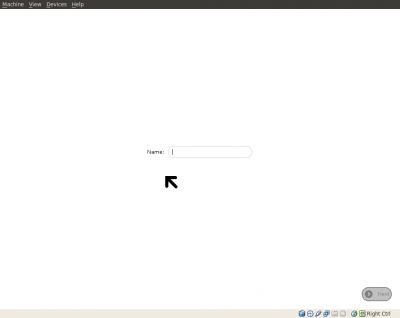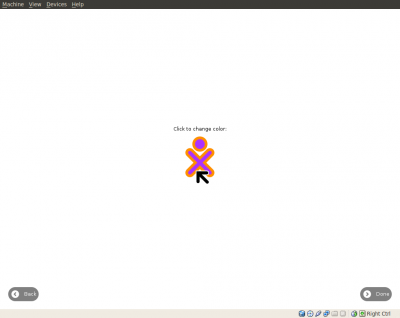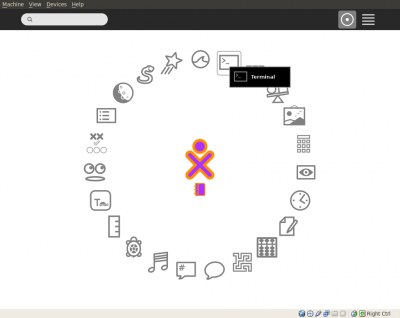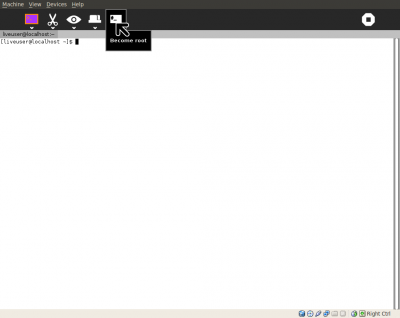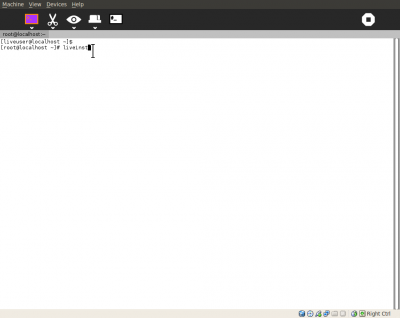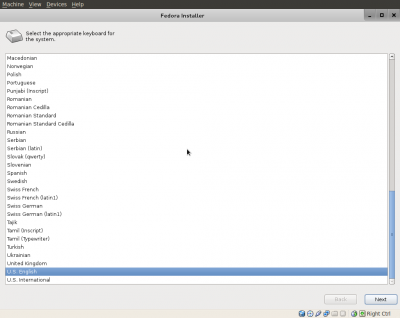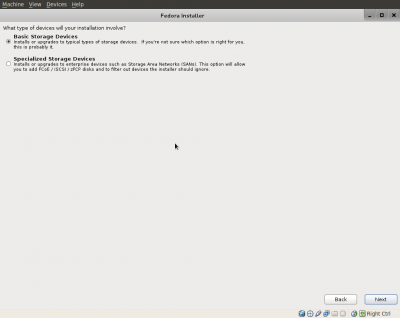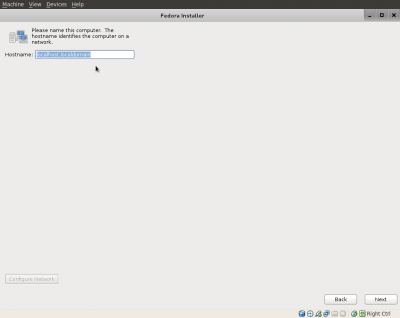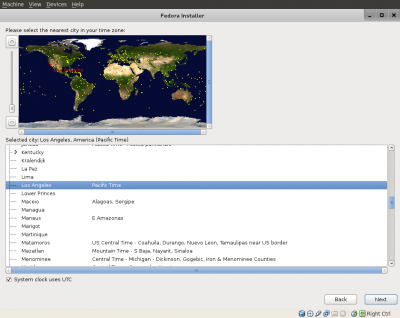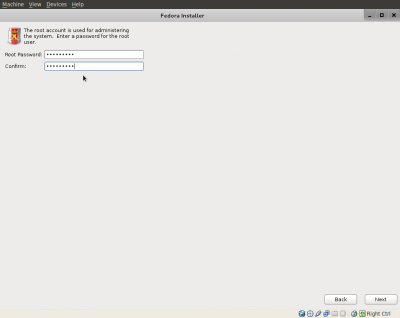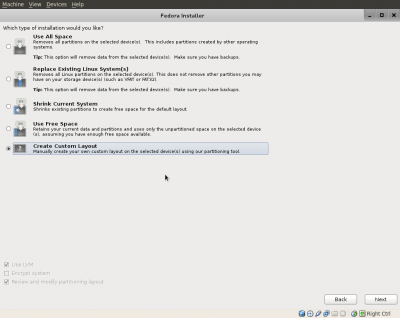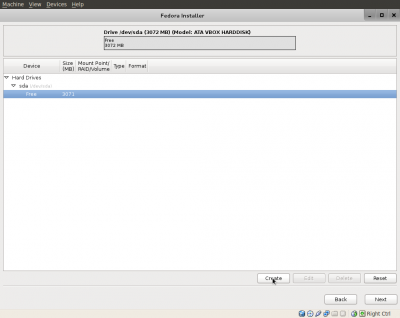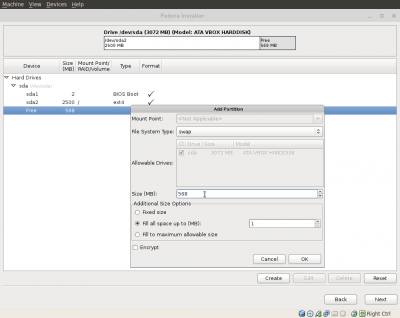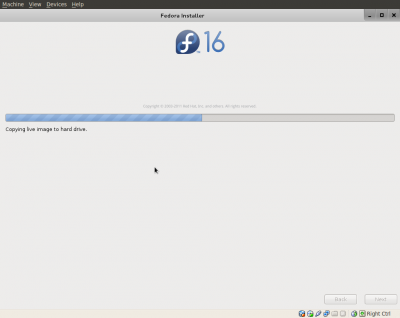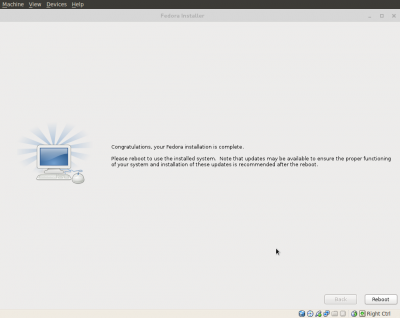Tutorials/Installation/Install with liveinst
Appearance
Fedora-29-Live-SoaS-install
- Fedora-SoaS-Live-29_install
- fedoradocs:fedora/f29/install-guide/install/Installing_Using_Anaconda/
- Annotated Screenshots of f29 liveinst install
- fedoradocs:fedora/f29/install-guide/install/Installing_Using_Anaconda/
Fedora-16-Live-SoaS
- The Fedora Sugar on a Stick Spin can be installed from a booted SoaS Live CD/USB.
- See Sugar on a Stick/Downloads for the current version.
- This tutorial is set up for a 4 GB USB stick or VirtualBox 4 GB hard disk install.
- liveinst (anaconda) requires 512 MB memory as a minimum to start in Fedora 17.
- You can also install to a regular hard disk. See Type of installation below.
- Burn and Boot the CD, or load the .iso as described here, and boot the Live USB.
Name Screen
- First Screen that appears when boot is done.
- The Name and colors screens set the individual SSH ID for the user and only run once.
- (Enter Name you want to use.)
Colors
- Chose colors for your Sugar Learner avatar

- Click on the avitar to change colors - repeat to change again.
- Click (done) when you are happy with it.
Home view
- Sugar starts at the Home view (F3).
- The Terminal Activity is selected.
- Click on [#_] Become root
liveinst
- Enter the command
liveinst, which starts the Anaconda installer.
- Language
Storage devices
- Choose Basic Storage Devices
- Click [Next]
- Hostname selection
- Time zone selection
Password
- Enter it twice.
Type of installation
- USB stick: Create Custom Layout
- You MUST SELECT THIS OPTION.
- Hard disk: Select Use All Space and proceed to Copying to hard drive.
- Other drive configurations are possible if you have free space
on your hard disk, but booting may be more complicated.
- Click [Next]
- Select edit /sda, or the disk where you want to install Sugar.
- Create:
- File System Type: BIOS Boot Size (MB): 2
- Mount Point: / File System Type: ext4 Size (MB): 2500 (or space available)
- File System Type: swap Size (MB): 500 for hard disk installation. (Swap is not recommended for USB flash drives.)
- (Fedora 16 (and later) requires a BIOS boot partition in the default configuration.)
- Click [OK]
- [Next]
Copying to hard drive
Congratulations
- Finished
- [Reboot]
- Shut down the computer.
- Reboot from the USB device or hard drive.
- On reboot, you will enter "firstboot" to register yourself and your Sugar Learner colors.
- This is similar to the name and color screens when the Live CD/USB first booted.
